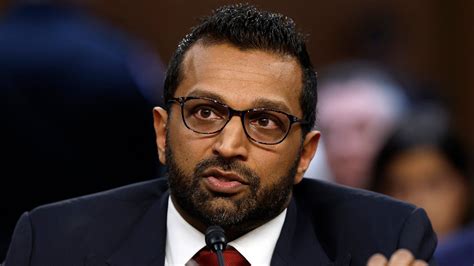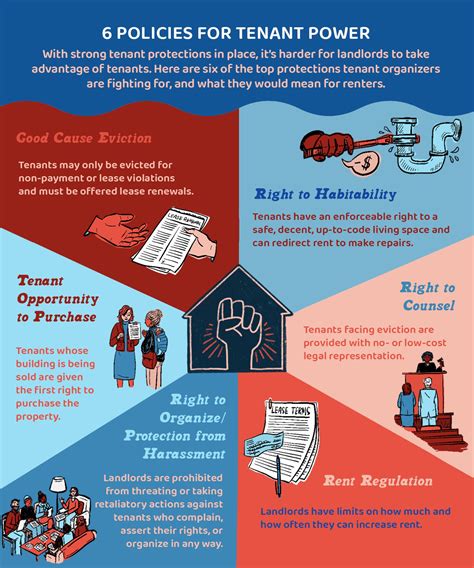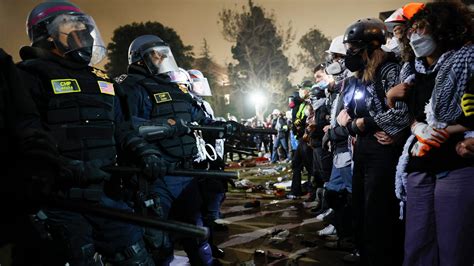
A former FBI chief of staff, Kash Patel, claimed on the “Joe Rogan Experience” podcast that the FBI possesses information about who is responsible for swatting incidents targeting high-profile individuals, including members of Congress and even Rogan himself. Patel alleged the agency has not acted on this information.
Kash Patel, who also served as a lead investigator for the House Intelligence Committee during the Trump administration, asserted on the podcast that the FBI knows the identities of individuals behind several swatting attacks, but hasn’t made arrests, raising concerns about potential political motivations or bureaucratic inaction. “We know who swats people… the FBI knows who swats people. They haven’t done anything,” Patel said during the interview. He suggested the FBI has the capability to stop these attacks, particularly those against public figures, and questioned the reasons behind the agency’s apparent lack of action. The FBI has yet to respond publicly to Patel’s claims.
The revelation sparked immediate controversy and renewed scrutiny of the FBI’s handling of swatting incidents, which are dangerous and potentially lethal hoaxes involving false reports to emergency services that prompt an armed police response to a targeted location. Patel further alleged that the FBI may be reluctant to pursue these cases aggressively due to fear of political backlash or concerns about the individuals involved. These claims, made on one of the most popular podcasts globally, have amplified calls for transparency and accountability from the FBI regarding its efforts to combat swatting.
Swatting incidents have become an increasing concern in recent years, affecting not only celebrities and public figures but also private citizens. The incidents carry significant risks, including the potential for serious injury or death due to the aggressive nature of the police response. Furthermore, victims often experience severe emotional distress and financial losses due to property damage, legal fees, and reputational harm.
Patel’s statements add a layer of complexity to the ongoing debate about the role of law enforcement in addressing swatting. His allegations suggest that the FBI has the resources and capabilities to identify and apprehend perpetrators but has chosen not to act, raising questions about the agency’s priorities and potential political influences. These claims are likely to fuel further investigations and demands for greater transparency from the FBI regarding its efforts to combat swatting and protect potential victims. The implications of Patel’s claims are significant, potentially impacting public trust in law enforcement and raising concerns about the safety and security of individuals targeted by swatting attacks.
The interview has ignited a firestorm of debate across social media and news outlets, with many calling for immediate action from Congress to investigate Patel’s claims and hold the FBI accountable. Some legal experts have suggested that Patel’s statements could potentially trigger congressional hearings or even a formal inquiry into the FBI’s handling of swatting incidents. The controversy also highlights the broader issue of misinformation and the potential for the misuse of law enforcement resources.
The impact of Patel’s allegations extends beyond the immediate concerns about swatting and raises broader questions about the transparency and accountability of federal law enforcement agencies. The FBI’s response, or lack thereof, will be closely watched in the coming days and weeks, as the public demands answers and assurances that the agency is taking all necessary steps to protect individuals from the dangers of swatting. This incident also underscores the growing importance of media platforms like podcasts in shaping public discourse and holding institutions accountable.
Expanded Context and Analysis
Kash Patel’s background provides crucial context to his claims. As a former federal prosecutor, intelligence official, and chief of staff to the Acting United States Secretary of Defense under the Trump administration, Patel brings a unique perspective and insight into the workings of the U.S. government and its intelligence agencies. His experience in these roles gives him a level of credibility that resonates with many listeners of the “Joe Rogan Experience,” a podcast known for its wide reach and diverse audience.
During his tenure as an investigator for the House Intelligence Committee, Patel played a significant role in the investigation into Russian interference in the 2016 U.S. presidential election. He was also involved in the drafting of the Nunes memo, a controversial document that alleged surveillance abuses by the FBI and the Department of Justice. These experiences have shaped his views on the role and responsibilities of law enforcement agencies, particularly the FBI.
Patel’s decision to make these allegations on the “Joe Rogan Experience” is also noteworthy. The podcast has a massive following and is known for its freewheeling and often controversial discussions. Rogan’s audience tends to be diverse, encompassing a wide range of political views and backgrounds. This platform provides Patel with an opportunity to reach a large and engaged audience and to disseminate his message directly to the public.
The timing of Patel’s allegations is also significant. Swatting incidents have been on the rise in recent years, and there is growing concern about the potential for serious harm or even death resulting from these hoaxes. Several high-profile individuals, including members of Congress, celebrities, and journalists, have been targeted by swatting attacks. The increasing frequency and severity of these incidents have put pressure on law enforcement agencies to take more effective action to prevent and investigate them.
The FBI’s Response (or Lack Thereof)
As of now, the FBI has not issued an official statement in response to Patel’s allegations. This silence has fueled further speculation and criticism of the agency. Some observers have suggested that the FBI may be reluctant to respond directly to Patel’s claims due to the sensitive nature of the information involved or concerns about compromising ongoing investigations. Others have argued that the FBI’s silence is an indication that Patel’s allegations may be accurate and that the agency is attempting to avoid further scrutiny.
Regardless of the FBI’s motivations, its failure to respond to Patel’s allegations has created a vacuum of information that has been filled by speculation and conjecture. This lack of transparency has further eroded public trust in the agency and has raised questions about its commitment to accountability and transparency.
The Legal and Political Implications
Patel’s allegations have significant legal and political implications. If it is true that the FBI has information about the individuals responsible for swatting attacks but has failed to act on that information, it could potentially expose the agency to legal liability. Victims of swatting attacks could potentially sue the FBI for negligence or failure to protect them from harm.
Politically, Patel’s allegations could trigger congressional investigations or hearings into the FBI’s handling of swatting incidents. Members of Congress could demand that the FBI provide them with information about its efforts to combat swatting and could hold hearings to examine the agency’s policies and procedures.
The controversy surrounding Patel’s allegations could also have broader political implications. It could further fuel the ongoing debate about the role and responsibilities of law enforcement agencies and could lead to calls for greater oversight and accountability. The allegations could also be used by political opponents to attack the FBI and to undermine public trust in the agency.
The Broader Context of Swatting
Swatting is a serious crime that can have devastating consequences for victims. The act involves making a false report to emergency services, typically claiming that a violent crime is in progress at a specific location. This false report then prompts an armed police response to the targeted location, putting the victims at risk of serious injury or death.
Swatting incidents are often motivated by malice, revenge, or a desire to harass or intimidate the victims. The perpetrators may target individuals who are involved in online gaming, political activism, or other controversial activities. Swatting can also be used to extort victims or to disrupt their lives.
The rise of swatting incidents in recent years has been attributed to several factors, including the increasing availability of technology that makes it easier to make false reports to emergency services, the anonymity provided by the internet, and the growing polarization of political discourse.
Potential Solutions and Preventive Measures
Addressing the problem of swatting requires a multi-faceted approach that involves law enforcement, technology companies, and the public.
Law enforcement agencies need to develop better strategies for preventing and investigating swatting incidents. This includes improving their ability to identify and track down perpetrators, as well as developing protocols for responding to swatting calls in a way that minimizes the risk of harm to victims.
Technology companies also have a role to play in preventing swatting. They can work to develop tools and technologies that make it more difficult to make false reports to emergency services, as well as to identify and flag suspicious activity.
The public also needs to be educated about the dangers of swatting and encouraged to report any suspicious activity to law enforcement. Individuals can also take steps to protect themselves from swatting by limiting the amount of personal information they share online and by being aware of the risks.
The Role of Media Platforms
The “Joe Rogan Experience” and other media platforms play a significant role in shaping public discourse about important issues like swatting and law enforcement accountability. These platforms provide a space for individuals to share their experiences and perspectives, and they can help to raise awareness about important issues.
However, media platforms also have a responsibility to ensure that the information they disseminate is accurate and reliable. They should be careful to avoid spreading misinformation or sensationalizing events. They should also be transparent about their sources and methods and should be willing to correct any errors that they make.
In the case of Patel’s allegations, the “Joe Rogan Experience” provided a platform for him to share his views with a large audience. The podcast also generated significant media attention and helped to raise awareness about the issue of swatting. However, it is important to note that Patel’s allegations have not been independently verified and that the FBI has not yet responded to them.
Conclusion
Kash Patel’s allegations regarding the FBI’s handling of swatting incidents have sparked a significant controversy that raises important questions about law enforcement accountability and the safety and security of individuals targeted by these dangerous hoaxes. The FBI’s silence in response to these allegations has further fueled speculation and criticism. The legal and political implications of Patel’s claims are significant, and they could potentially trigger congressional investigations or hearings. Addressing the problem of swatting requires a multi-faceted approach that involves law enforcement, technology companies, and the public. Media platforms also have a responsibility to ensure that the information they disseminate is accurate and reliable. The outcome of this controversy remains to be seen, but it is clear that it will continue to be a subject of intense public interest and debate in the coming days and weeks. The core of the issue revolves around the balance between public safety, governmental transparency, and the responsible use of information in a digital age.
Frequently Asked Questions (FAQ)
1. What is swatting, and why is it dangerous?
Swatting is a criminal harassment tactic involving a false report to emergency services (like 911) that leads to an armed police response at a victim’s address. It’s dangerous because it can result in serious injury or death due to the aggressive nature of the police response, who believe they are responding to a genuine threat. Victims also suffer emotional distress, financial losses from property damage and legal fees, and potential reputational harm.
2. What are Kash Patel’s specific allegations against the FBI?
Kash Patel alleges that the FBI possesses information about who is responsible for numerous swatting incidents, including those targeting high-profile individuals, but has failed to take action to arrest or prosecute the perpetrators. He claims the FBI has the capability to stop these attacks but hasn’t, suggesting potential political motivations or bureaucratic inertia as reasons.
3. How credible are Kash Patel’s claims, given his background?
Kash Patel’s claims carry weight due to his extensive background as a former federal prosecutor, intelligence official, and chief of staff to the Acting Secretary of Defense. His experience within the U.S. government and intelligence communities gives him a certain level of credibility, particularly regarding matters of law enforcement and national security. However, it is also essential to acknowledge that his past involvement in controversial investigations, such as the investigation into Russian interference in the 2016 election and the drafting of the Nunes memo, may influence perceptions of his objectivity.
4. What has been the FBI’s response to Patel’s accusations?
As of the time of this article, the FBI has not issued any official statement in response to Kash Patel’s allegations. This silence has fueled speculation and criticism, with some interpreting it as a sign that Patel’s claims may be accurate or that the FBI is attempting to avoid further scrutiny. Others have suggested that the agency may be reluctant to respond due to the sensitive nature of the information involved or concerns about compromising ongoing investigations.
5. What are the potential consequences if Patel’s allegations are proven true?
If Patel’s allegations are proven true, the consequences could be significant. Legally, the FBI could face lawsuits from victims of swatting attacks who claim the agency’s inaction caused them harm. Politically, the allegations could trigger congressional investigations or hearings into the FBI’s handling of swatting incidents. It could also lead to calls for greater oversight and accountability of federal law enforcement agencies. The controversy could further erode public trust in the FBI and have broader implications for the ongoing debate about the role and responsibilities of law enforcement in a democratic society.









